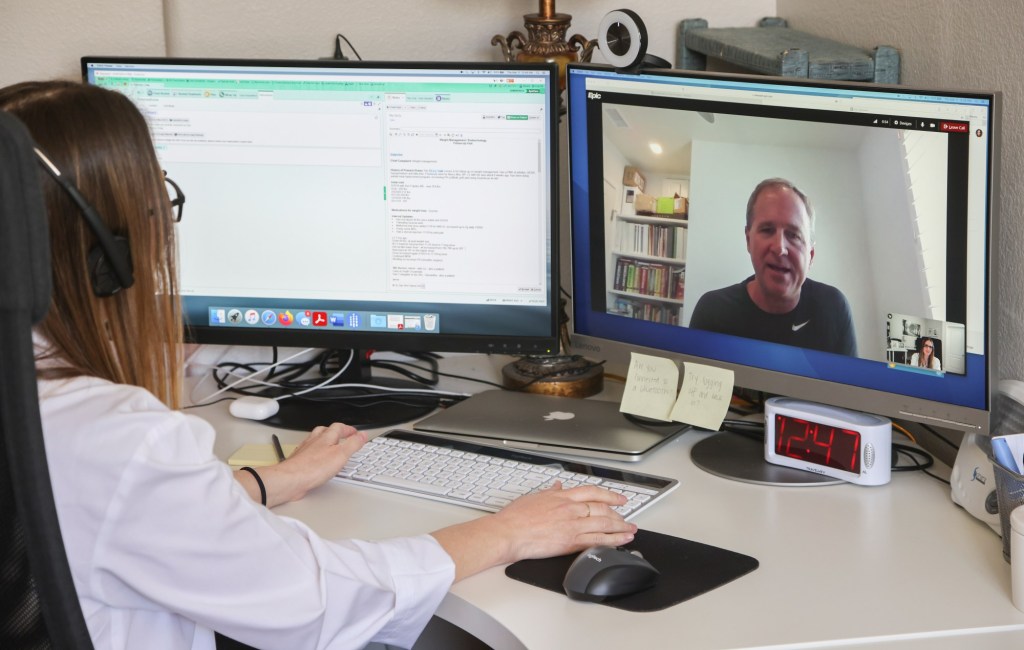
Too often, government officials blur the line between speech and conduct to justify censorship. That pattern is repeating itself—this time through California’s vague and overreaching medical licensing laws, which are now the subject of a significant constitutional challenge. It’s a reminder that Americans don’t lose their free speech rights just because they work in a licensed profession.
California law makes it a crime for out-of-state doctors—even those fully licensed elsewhere—to discuss diagnoses or medical information with patients in California. These rules are especially troubling in the context of telehealth, where doctors regularly offer consultations across state lines. But thanks to California’s broad definition of “unauthorized practice,” many physicians are now self-censoring rather than risk criminal penalties or action from the state’s licensing board.
This isn’t a new tactic. In NAACP v. Button (1963), at the height of civil rights activism, Virginia officials labeled the NAACP’s encouragement to members of the public to bring desegregation lawsuits as “improper solicitation.” The US Supreme Court rejected that misuse of professional regulations, ruling it violated the First Amendment. Recently, the Fifth Circuit struck down a Texas law that restricted when veterinarians could speak to clients virtually, ruling it directly regulated speech, not conduct.
California’s medical licensing scheme now faces a similar legal challenge. Dr. Sean McBride, a nationally recognized New York–licensed oncologist, and Shellye Horowitz, a California patient with a rare blood disorder, have sued the state’s medical board, arguing the law violates their free speech rights.
Dr. McBride treats patients from across the country. He wants to consult remotely with California patients before they travel to New York for treatment—and follow up afterward. But under California law, he risks criminal penalties for doing so without a California license. Meanwhile, Ms. Horowitz lives in a rural part of California and travels 14 hours round-trip to consult with specialists in Oregon because the law discourages them from speaking with her by phone or video.
The federal trial court sided with the licensing board, accepting the state’s argument that it is regulating treatments and “conduct,” not “speech.” The trial court even adopted the medical board’s expanded definition of prohibited subjects: “discussion of symptoms and diagnoses, addressing recovery and patient questions, and providing [medical] information.”
The case is now headed to the Ninth Circuit, where it will need to decide a crucial question: When California prohibits doctors from other states from simply speaking with patients, is it regulating professional conduct or speech?
The distinction is crucial. While conduct can typically be regulated, speech is highly protected by the courts. The danger of classifying spoken words as conduct is clear. Courts regularly—like in the Virginia NAACP case and the Texas veterinary case—reject regulators’ and prosecutors’ attempts to define disfavored speech as professional conduct. Likewise, in a 2018 case called NIFLA v. Becerra, the Supreme Court struck down a California law mandating that pro-life clinics advertise state abortion services. The Court rejected California’s contention that its speech mandate was a regulation of professional conduct.
Similarly, in this case, the California professional licensing regulations directly regulate speech. Dr. McBride and Ms. Horowitz do not wish to engage in “conduct” that traditionally triggers professional regulation—like surgery, prescribing medications, or medical scans. They seek only to have private patient-doctor communications. California’s broad licensing regime chills the speech of California patients and their physicians.
Americans should be able to have frank and personalized conversations with regulated professionals, like lawyers, doctors, and veterinarians, regardless of where they live. If lawmakers want to regulate conduct, they should write laws that clearly define the specific actions—like prescribing medication or ordering labs—that fall within their reach. Vague laws invite abuse, especially by self-interested licensing boards and overzealous prosecutors. Precision in lawmaking is good governance and essential to preserving individual liberty.
The Cato Institute authored an amicus brief in McBride v. Lawson, supporting Dr. McBride.
Brent Skorup is a legal fellow in the Cato Institute’s Robert A. Levy Center for Constitutional Studies. Caitlyn Kinard is a legal associate at the Cato Institute’s Levy Center.



